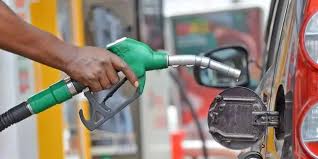The Federal Government has confirmed that Nigeria’s daily petrol consumption has declined to 50 million litres, with local refineries supplying half of this demand while the rest is imported. However, none of the companies engaged in domestic refining are involved in the importation process.
Speaking after a stakeholders’ meeting in Abuja, the Executive Director of Distribution Systems, Storage, and Retailing Infrastructure at the Nigerian Midstream and Downstream Petroleum Regulatory Authority (NMDPRA), Ogbugo Ukoha, emphasized that petrol imports remain essential to prevent shortages in the downstream sector.
“Prior to 2023, daily petrol supply averaged about 66 million litres per day. However, following the removal of fuel subsidies by President Bola Tinubu on May 29, 2023, we observed a sharp decline in consumption. Since then, daily petrol demand has stabilized at around 50 million litres,” Ukoha stated.
He explained that while domestic refineries contribute less than 50% of the total supply, the shortfall is met through imports in line with the Petroleum Industry Act (PIA).
Ban on 60,000-Litre Fuel Tankers
Ukoha also announced that, effective March 1, 2025, tankers with a capacity exceeding 60,000 litres will be prohibited from transporting petrol and other petroleum products.
The move, despite opposition from the National Association of Road Transport Owners (NARTO), aims to curb the rising incidents of fuel tanker accidents. NARTO had warned that the ban could lead to financial losses exceeding N300 billion for truck owners who invested in over 2,000 high-capacity tankers.
“After extensive discussions with stakeholders, including the DSS, FRSC, Federal Fire Service, NUPENG, MEMAN, IPMAN, and SON, we reached a consensus that, from March 1, any truck carrying more than 60,000 litres of hydrocarbon will no longer be permitted to load at depots,” Ukoha stated.
He further revealed that by the fourth quarter of 2025, the limit would be further reduced, barring trucks with capacities exceeding 45,000 litres from transporting petroleum products.
The NMDPRA stressed that oversized fuel tankers have been a major cause of road accidents and infrastructure damage, necessitating stricter regulations to enhance safety and road durability.




